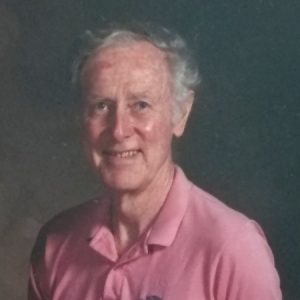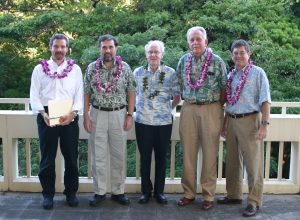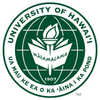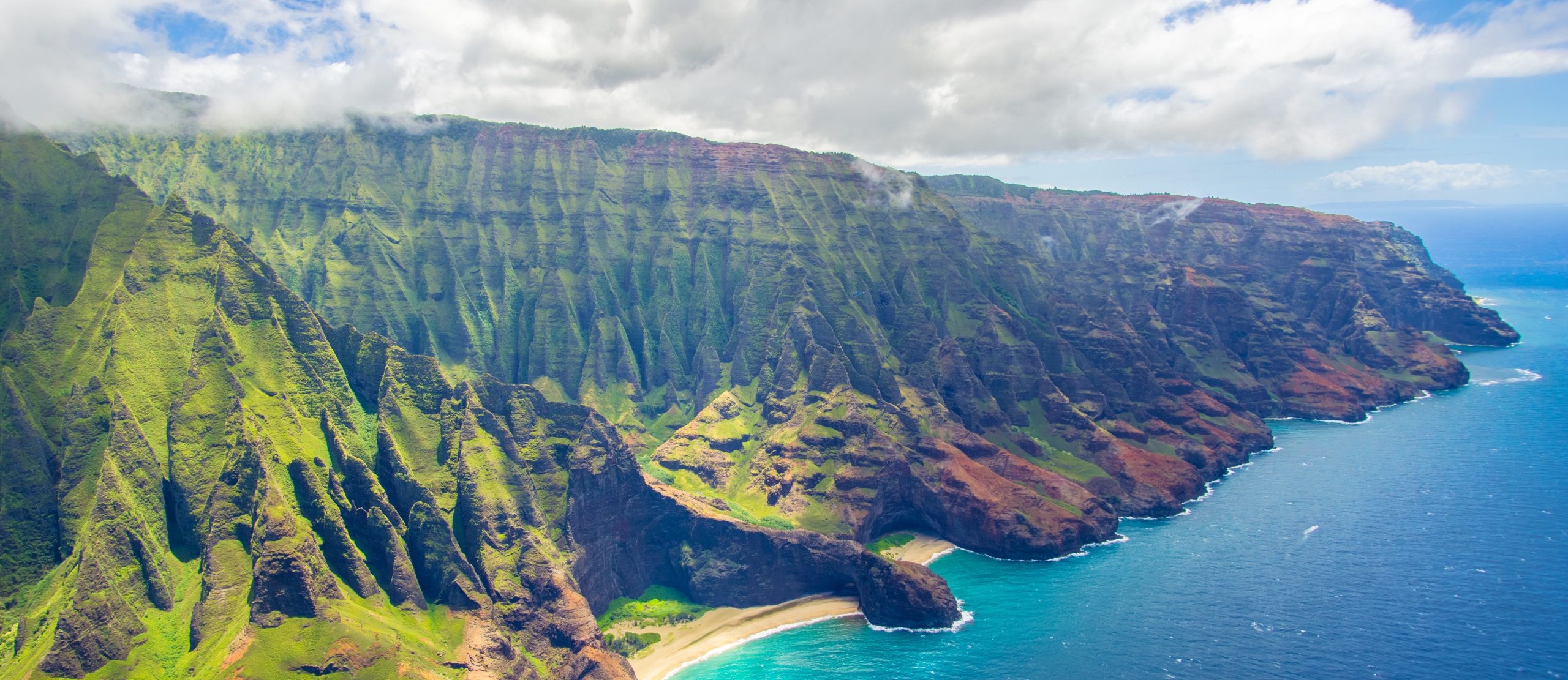COLIN STOKES RAMAGE: 1921-2017
by
Thomas Schroeder
Published in the Bulletin of the AMS 2018
Colin Stokes Ra mage, an AMS Fellow, passed away on December 17, 2017 at age 96. A pioneer in tropical meteorology, his career spanned World War II to the turn of the 21st century. He was the founding chair of the Department of Meteorology (now the Department of Atmospheric Science) at the University of Hawaii (UH) at Manoa.
mage, an AMS Fellow, passed away on December 17, 2017 at age 96. A pioneer in tropical meteorology, his career spanned World War II to the turn of the 21st century. He was the founding chair of the Department of Meteorology (now the Department of Atmospheric Science) at the University of Hawaii (UH) at Manoa.
Colin was born in New Zealand on March 3, 1921. He earned a B.S. from Victoria University College, Wellington, in 1940. That same year he entered the New Zealand Meteorological Service. He served in the Royal New Zealand Air Force from 1942 to 1946. His specialty was “synoptic meteorology and forecasting; research into meteorology of high Southern Hemisphere latitudes.” Colin joined the Royal Observatory at Hong Kong (now The Observatory) in 1946 as a scientific officer, eventually becoming acting director. His research in tropical meteorology began while at Hong Kong, as evidenced by a series of publications in AMS journals, and he received an Sc.D. from New Zealand in 1961.
In 1956, Colin arrived as an initial hire at the nascent program in meteorology at the University of Hawaii. Initial support for the program was provided by the U.S. Air Force. The program grew to an academic department with Colin as department chair, a post he held until his retirement in 1987.
Colin’s tenure in Hawaii coincided with a number of significant developments in tropical meteorology, oceanography and climate. Some highlights were:
1. Meteorological satellites. On April 1, 1960, Colin and James Sadler were present at Kaena Point, Oahu, awaiting the first images from TIROS-1. They were among the first to use satellite imagery in tropical analysis and research, notably Eastern Pacific tropical cyclones and subtropical cyclones. UH scientists later participated in the Line Islands Experiment (1967), which coincided with the launch of the Applied Technology Satellite (ATS)-1.
2. International Indian Ocean Expedition. Colin was a principal contributor to the planning and execution of the U.S. effort in the International Indian Ocean Expedition (IIOE, 1962-65), which was primarily an oceanographic venture. Colin participated in the development of the meteorology element and spent a year in Mumbai.
In 1971, he published Monsoon Meteorology, incorporating his years of experience in Hong Kong as well as the findings of the IIOE. His course, “Monsoon Meteorology,” remains a standard offering at UH. One of his contributions to the literature was the term “maritime continent.”Colin Stokes Ramage, an AMS Fellow, passed away on December 17, 2017 at age 96. A pioneer in tropical meteorology, his career spanned World War II to the turn of the 21st century. He was the founding chair of the Department of Meteorology (now the Department of Atmospheric Science) at the University of Hawaii (UH) at Manoa.
3. Monsoon Experiment. Colin and UH colleagues were participants in the planning and execution of the Monsoon Experiment (MONEX), a component of the first Global Atmospheric Research Program (GARP) Global Experiment. Colin, colleagues, and students were in Kuala Lumpur for the winter MONEX field phase.
4. El Nino/Southern Oscillation and its consequences. The 1972-73 El Nino drew scientific attention to equatorial ocean-atmosphere interactions. Oceanographers and atmospheric scientists at UH have been prominent in the science of the El Nino/Southern Oscillation. Colin assembled a meteorological atlas of the 1972-73 El Nino. Colin continued to study seasonal-to-interannual climate variability throughout his career.

Colin retired from UH in December 1987. He moved to Boulder, Colorado, where he remained active with the Cooperative Institute for Research in the Environmental Sciences at the University of Colorado. In addition he remained active with UH. In summer 1990, he participated in the field phase of the Tropical Cyclone Motion Experiment in Guam. He also initiated a project to revise the Air Force Forecasters Guide to Tropical Meteorology.
A widower, Colin married again and started a new family and moved to North Carolina in 1990. He served as an adjunct professor at North Carolina State University. In 1995, the revised Air Weather Service Forecasters Guide to Tropical Meteorology was published. In 1999, he published his last scientific paper with Thomas Schroeder on rainfall on Mount Waiʻaleʻale, Kauai, a subject that long fascinated him.
Colin was noted for his keen intellect, his breadth of knowledge (well beyond his science), and his healthy skepticism. He loved to debate, and department seminars were lively events, especially when the physical oceanographers attended, and the subject was El Nino. The larger community became aware of his skepticism of early general circulation and weather prediction models. The skepticism was demonstrated in comments about journal articles as well as a pair of papers in BAMS on outlook for numerical weather prediction.
Colin loved his science and enjoyed the classroom. He read his rain gauge every day up to the day when his health prevented him leaving the house. While an adjunct at North Carolina State, Colin taught a seminar series on tropical meteorology. One attendee, a young faculty member named Steven Businger (now the department chair at Hawaii), commented that Colin “had a twinkle in his eye when he lectured.”


Colin Ramage was my hero and my mentor, along with Tom Schroeder, at the University of Hawaii. I will never forget the in-depth and wonderful discussions of weather phenomena I had with Colin, in particular our discussions of a primary interest of mine, the “Kona” or sub-Tropical low that forms at mid-levels of the atmosphere and brings Hawaii much of its more significant rainfall events. Colin will be sorely missed and was a wonderful person and scholar.